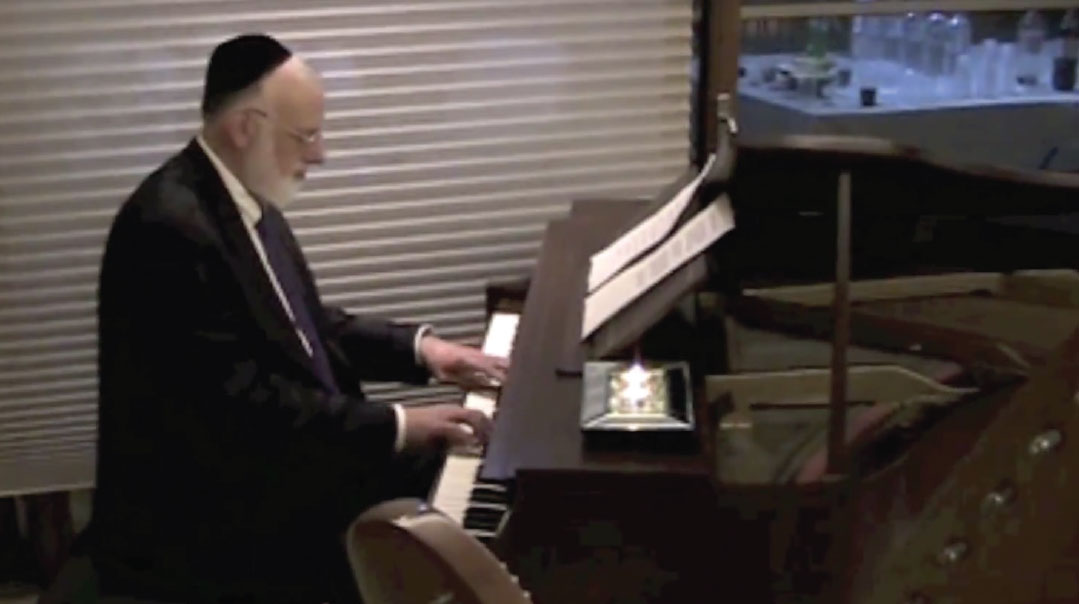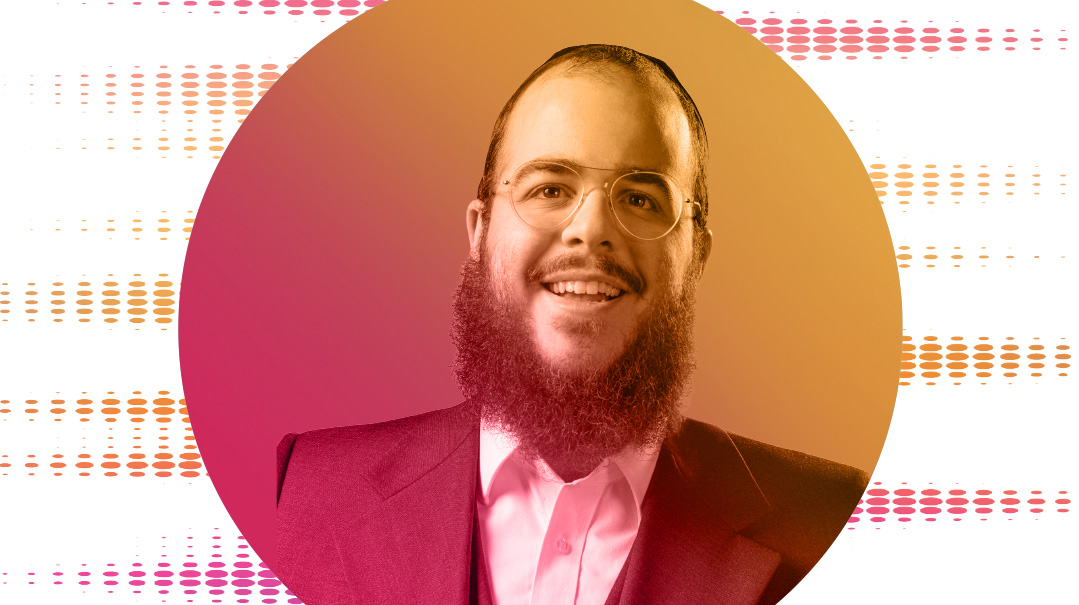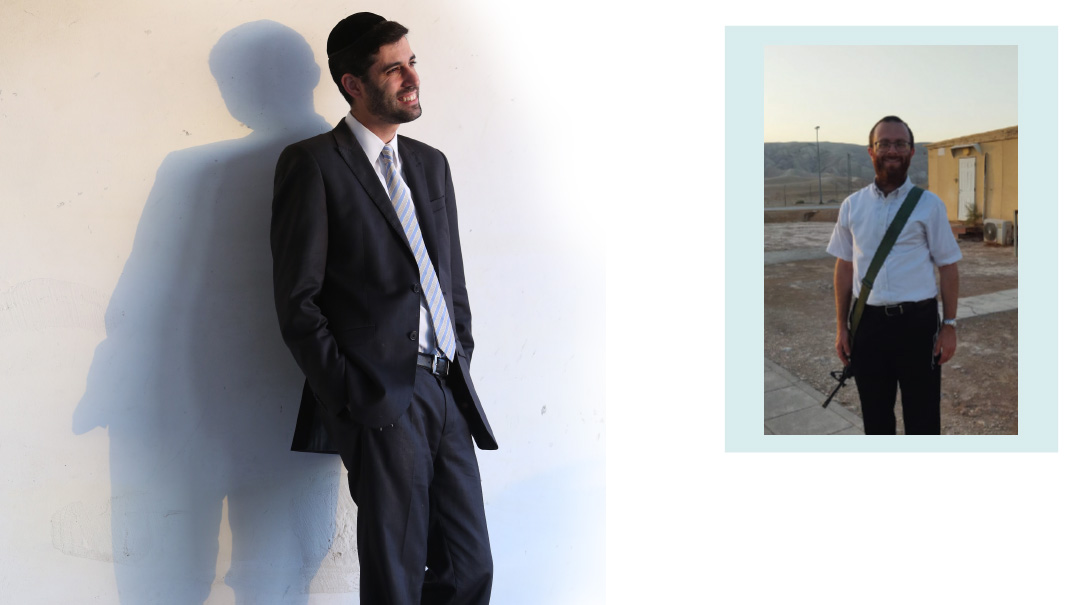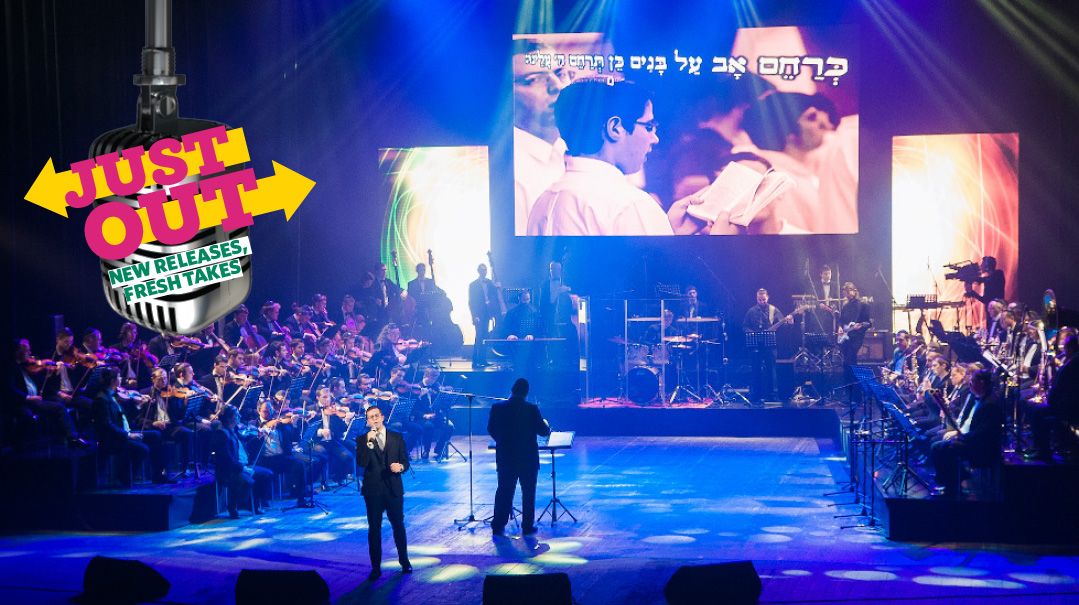Real Music, Real Job
| September 4, 2019Leib Yaacov Rigler’s music is not only a “real profession,” but a true calling too

Raised in a Reform family in a suburb of Chicago, composer, conductor, pianist and arranger Leib Yaacov Rigler began piano lessons when he was eight years old — but despite his obvious musical gifts, his parents wanted him to have “a real profession.” They compromised on a degree in music therapy at the University of Kansas, but that career didn’t last long.
“I had been working in a hospital for less than a year when I got a call from a musician friend — the late banjo player Skip Devol — asking me to work with him. I took the leap and quit my job,” Leib Yaacov says. “I’ve been performing since.”
A move to California followed. The young musician was hired as music director for comedian Jerry Van Dyke, then moved on to freelance work. Writing and arranging music and playing at nightclubs and other venues across the United States fulfilled Rigler’s musical aspirations. Not much was left of his Jewish observance or identity, though.
Then, Rigler found himself hired by a frum band in L.A. “All their events were in the Orthodox community. I got to see Jewish life through those Orthodox weddings. I’d ask the band leader why they did what they did, and I was struck by the deep meaning of everything. My Jewish identity had been sparked.” Pretty soon Leib Yaacov was attending Shabbos meals — and then started learning Torah. In 1987, he made aliyah, keeping the music playing all the time.
“There was another very important thing I learned during that time in L.A., which has influenced me to this day,” Leib Yaacov says. “That band had a drummer who wasn’t Jewish, and he was also prejudiced against clichéd songs. I didn’t understand Jewish music so well at that point, and my first impressions of it were that it was boring, using the same two or three chords. But that drummer was a master, and he taught me that no matter how repetitive the material is, bringing emotion to the music will bring it to life. I’ve always kept that in mind.”
Rigler is the arranger of choice for many Jewish music artists today. He also composes his own works, hoping to bring more symphonic music into the Jewish world. Waiting for the right moment is his never-yet-performed seven-piece symphony titled “Jerusalem Suite,” which takes listeners on a journey through different themes of Jewish life around Yerushalayim. “As well as expanding the musical awareness of the frum world, I’d like to help non-affiliated Jews who enjoy classical music to get more in touch with their heritage. One movement of my symphony is about Shabbos, another is a badeken piece about the marriage ceremony, and one is about Jerusalem itself,” he explains.
Another upcoming project is the production of an original musical piece called “Akeidas Yitzhak,” written for three male singers. The lyrics use Chumash, Rashi, and Midrashic sources, as well as excerpts from relevant Selichos piyutim, to portray the Akeidah from three different angles: through the eyes of Avraham Avinu, Yitzchak, and the angel sent by Hashem to stop it.
The depth of Jewish feeling and inspiration coupled with phenomenal versatility and skill make Rigler’s music not only a “real profession,” but a true calling too.
(Originally featured in Mishpacha, Issue 776)
Oops! We could not locate your form.













